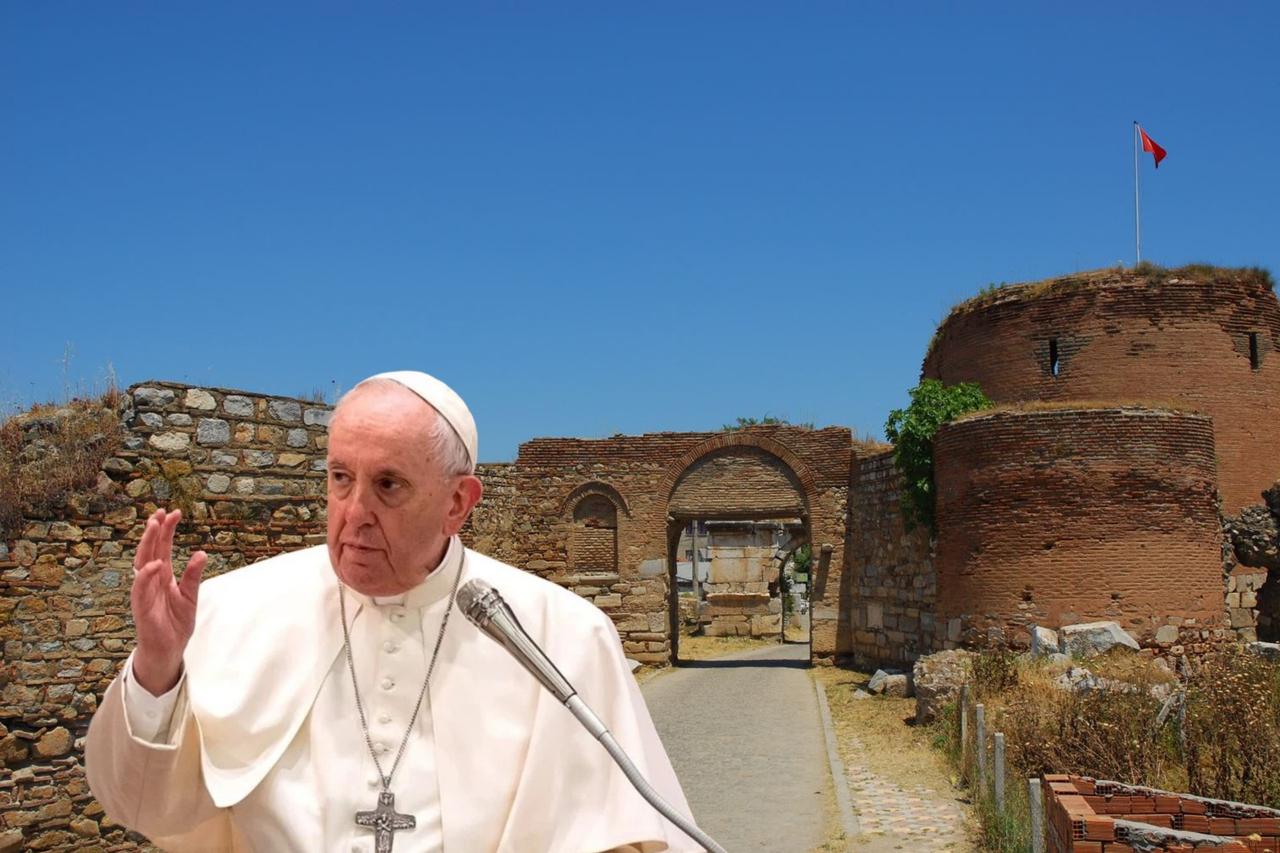
Pope Francis, the spiritual leader of Catholics and head of the Vatican City State who passed away last month, expressed his strong desire for an official visit to Iznik in his final spoken will. According to information obtained by ANKA News Agency, Pope Francis said, "If I am not alive, my successor must visit Iznik." Newly elected Pope Leo XIV is expected to visit Türkiye later this year.
The planned visit coincides with the 1700th anniversary of the First Council of Nicaea, a milestone in Christian history where church leaders sought to achieve unity. Pope Francis was initially expected to visit Türkiye in late May and hold a joint service with Ecumenical Patriarch Bartholomew. This event was intended to address longstanding disputes, including the date of Easter, with representatives from the Ecumenical Patriarchate and local churches of the Roman Catholic Church.
However, Pope Francis’ illness in mid-February and his passing on April 21 led to uncertainty regarding the visit. Whether his successor, Pope Leo XIV, will fulfill this commitment remains unclear.
Shortly before the Pope’s death, Türkiye Today inquired about the proposed visit with the Holy See’s Press Office. A Vatican spokesperson responded, "The Pope has expressed his intention to go, but there has been no official announcement, so at present we have no considerations to share."
The Vatican has released Pope Leo XIV’s schedule until May 25, which does not include a Türkiye visit. Nonetheless, sources close to the Ecumenical Patriarchate suggest that Patriarch Bartholomew, who will attend the Pope’s inauguration on May 18, is expected to extend an official invitation to Türkiye.
If Pope Leo XIV accepts, the visit could take place in the summer or autumn, with late May still a possibility. However, an official invitation from Turkish President Recep Tayyip Erdogan will be necessary, transforming the visit into a "state visit" with an initial meeting in Ankara before proceeding to Iznik.
Pope Francis consistently emphasized the importance of church unity. Despite his declining health, he maintained his desire to visit Iznik, a city historically significant as the site of Christianity’s first ecumenical council in 325 A.D. He reiterated this aspiration in multiple meetings, including with an Orthodox delegation and representatives of the World Methodist Council.
Iznik, known as Nicaea in ancient times, hosted the First Council of Nicaea under Roman Emperor Constantine I. The council sought to resolve key theological disputes and establish a unified Christian doctrine, including the Nicene Creed.